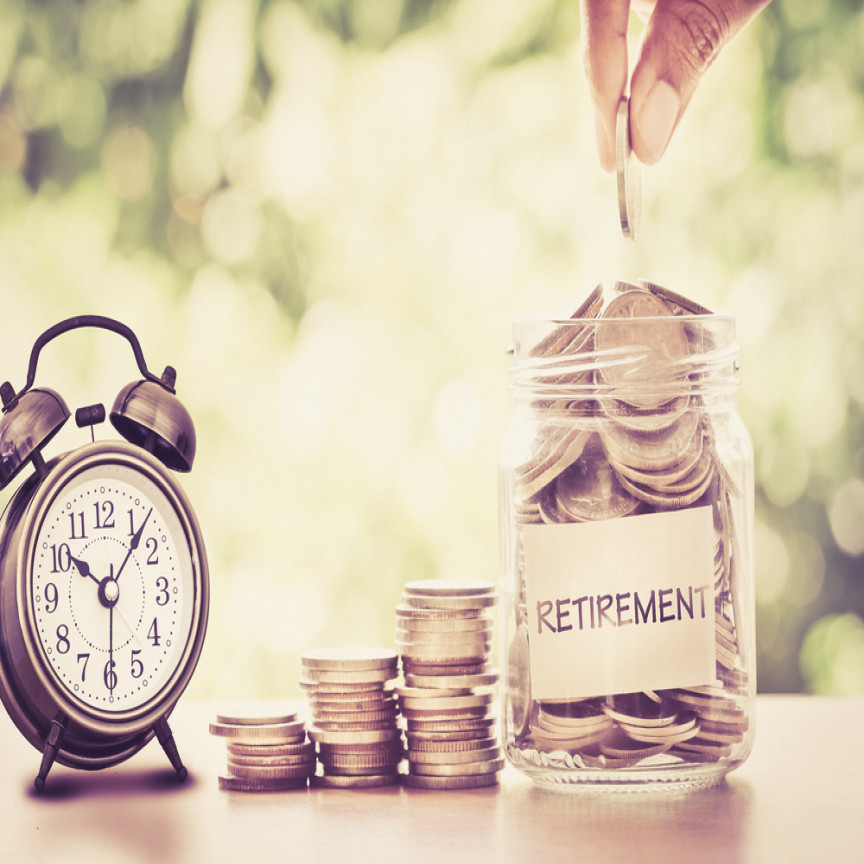Coronavirus has sparked anxiety all around the world, resulting in unmatched market volatility and economic disruptions. People have been told to self-isolate implying that many people will not have a choice to go to work in future.
Though the situation is expected to take a turn once the virus effect subsides, until then, it's important to plan about your finances as the economic damage is set to take a long time to resolve.
COVID-19 social-distancing, the shutdown of work and endless hours at home is a slight glimpse of how retirement will look like. The virus outbreak has put the need for health well-being and care for the older ones, subsequently adding concerns about saving too little for retirement.
ALSO READ: Understanding the basics of Retirement Planning
The value of your wealth that you have added over a period of time in investments has corroded as markets have plunged to record lows during the past month due to coronavirus impact. But at present, income is the most important source to get you going. Keep track of your income and get ready for it to wear down for a short period.
Here are few tips to help you plan your retirement and sail smooth-
- Don’t decide in a hurry
Wisely ponder the pros and cons of retiring in 1 or 2 years versus retiring in the next 10 years. The stock market downturn may have caused changes in your retirement plan. You must provide a market some time for recovery before making any retirement decision in a hurry. Consider how delaying your retirement plans can allow you to enhance your monthly social security disbursement for life compared to early retirement.
Put some distance between your instinct to take any action and your behaviour by taking a few deep breaths. Also, you must consider a financial expert who can help you in ensuring correct asset allocation.
- Keep Cash in hand
It is really tough to draw money from tumbling stock market or make an investment during the times of coronavirus. If you are near to retirement, it is really important to have the cash to cover up your bills for at least a year to be immune from such market downturns for some time. You must have emergency savings that are readily available to plan for unexpected events in the market. You must ensure that you have enough cash to manage your daily household needs and unanticipated events.
However, financial experts advise on holding onto some stocks to protect yourself in the case where you live longer than your assets. Retirees don’t have a longer time horizon than young investors, so they need to be more careful about their investments. It is advised to keep five years’ worth of expenses in cash such as short-term bonds, treasury bills and certificate of deposits.
ALSO READ: 5 Tips to Invest like an Intelligent investor in a lockdown scenario
- Investment plans able to cope with unprecedented calamities
You must have assets positioned for future income. Market is quite volatile at present, but this not the first-time markets have reacted this way. Stock markets have a history of first plunging and then recovering during such health crisis, helping investors who stick to their investments come ahead of others. Hence, rather than looking at your IRA or 401(k) plan regularly, you could fund them, but only if you are financially sound to do so.
If you are short on cash, just continue to match your contributions with employers to your 401(k) and transfer money into a high-yielding savings account.
You must have a diversified portfolio to lessen the risk associated with it. Investing in mutual funds is a great way to do the same. Every investor can diversify in two ways. One can be asset allocation that includes amount of bonds, stocks and money market funds you can hold. Second is you would want to move towards less risky assets if you are close to retirement as volatile securities can put a bigger cavity in your portfolio.
You should maintain a proper mix of assets that resist a high or low at exactly the same time.
- Be sure on your portfolio allocations
Younger investors are more likely to resist market fluctuations. They can consider adjusting their future purchases by adding a higher percentage of stocks to benefit from the market plunge, especially if they have a greater percentage of bonds in their portfolio. However, if your retirement is near, you must be more conservative with your investments.
Older investors can consider investing in relatively safer fixed-income investments and buy some stocks that have overperformed.
Hence, you can hire a financial expert to figure out which asset allocation will work best for your age and investment objective.
- Don’t discard stocks
Although it will be quite enticing for you to unload your stock investments at the present time, do not. Selling your investments when they are down only brings losses. You must not panic or make a harsh decision in such a situation.
There is a lot of ambiguity in the world during the present time, which can pose a very stressful situation for a person who is trying to map out retirement. You must maintain your calm and adjust plans as necessary.
At this time of uncertainty, the way to proceed with your retirement depends on your reaction to your financial situation and how close you are to retirement.




